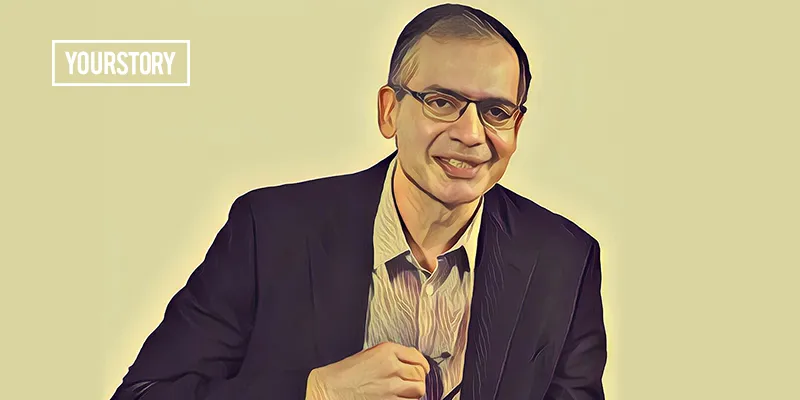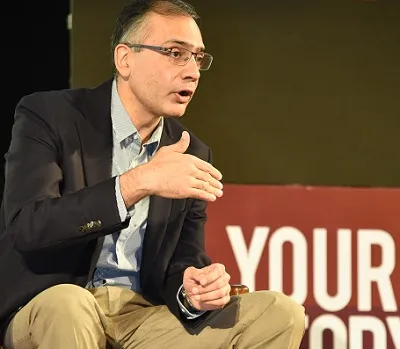When Deep Kalra spilled the beans on the MakeMyTrip-Ibibo merger
The MakeMyTrip-Ibibo Group merger which was announced a couple of months ago, is all set to be completed by this month-end. MakeMyTrip founder and CEO, Deep Kalra talked about how the deal came together.
The online travel industry in India can be divided into two eras‑the one before October 18, 2016, and the one after the MakeMyTrip-Ibibo group merger on October 18. The industry will never be the same again after one of the biggest mergers in recent times. Deep Kalra, Founder and CEO of MakeMyTrip(MMT), may be the man of few words, but he is never short of stories to share. At MobileSparks 2016, through his stories, he spilled the beans about the deal and the making of one of India’s largest OTAs merger.

The (futile) call and the 16-year-old legacy
The roots of the MakeMyTrip-Ibibo group merger goes back as early as last year. Deep had then used a common friend (who is an investor) to set up a call with Bob van Dijk, CEO of Naspers(Worldwide). Deep recalls,
It was a nice long call but nothing happened after that.
He takes us back to MMT journey which started in the year 2000. Though he has been running the company for 16 years, it feels like only eight to 10 years for him. He believes that when you’re having a good time, you don’t realise how time flies, but when you’re having a terrible time, time seems to stall forever.
The dream and the nightmare
He says, “We have been in many situations. Post IPO(in 2010) we went up to making $10 million in a year, so we know the smell of the money and how good it feels.”
But over the last few years, MMT was pushed into tough situations. Two years after company’s dream IPO at NASDAQ in 2010, Kingfisher went bust. It had a domino effect on all airlines. At that point of time, MMT’s 85 percent of business was coming from air tickets. So consequently, their business was a mess and the company went into losses. Deep says,
Then we said that we don’t want to be exposed in such a way to one sector, so we started out building hotel sectors and few others.
The hot(el) sector
According to Deep,the hotel sector is fundamentally more value creating sector. This is the case because there are 40,000-50,000 branded hotels in India and almost 10 times unbranded guest houses or alternate accommodations. So, there’s a vast market as compared to airlines industry where there are six to seven airlines at any given time. And at any point of time, there are one or two which do not do well, so it’s not a great industry to build value in. Deep shared that the margins in airlines sector are tiny. While some pay one percent, others pay up to 1.5 percent(when the targets are met and if the airlines are generous), and some even zero percent.
Deep says,
So, for us, air tickets are a great way to acquire customers and then we cross-sell them accommodations.
The company started building its hotels business in 2012. MMT has seen competition from early days only. Since 2005, they have been competing with Yatra,Cleartrip, and many others. In 2012, there were international players as well like – booking.com and Expedia. And that’s when Deep seriously noticed GoIbibo.com, who were competing tooth and nail and investing a lot of money in this sector.

When a discount shop showed the mirror
Deep acknowledges that MMT was completely blindsided about GoIbibo for the first two years, and used to say that they are a discount shop. He explains,
We had a lot of scorn for discount shops; we knew you can’t build a business on discounting. But we were wrong.
This perception was maintained because MMT team didn’t pick up till almost a year ago how good GoIbibo was with technology. Deep realised that when he got a chance to look at their extranet app (a solution given to their hotel partners to manage inventory and supply chain). He was simply blown away with it though some of his team members were in denial. He says,
It’s a human nature – to be defensive. My colleagues were defending and I said we were ostriches with our heads buried in the sand.
Finally, the company accepted the truth and hired someone very senior from GoIbibo. When Deepak Tuli came on-board, Deep just wanted to know – is it(GoIbibo) beyond discounting?Is the technology base so good that they are rolling products and features really fast? Deep recalls,
After understanding what we(MMT) are doing, he told me – yes, their(GoIbibo) tech rocks and our tech was spaghetti code, because of legacy.
The turning point
The core of the current code which MMT uses was built seven to eight years ago and was not in a great shape then. This was a turning point for Deep and he started treating them(GoIbibo) with much more respect and that led to many more things. He says,
It was a turning point when I realised that this competitor has got a USP and a USP which I consider a long-term competitor advantage.
According to Deep, as an entrepreneur, it’s very important to know what’s your long-term competitive advantage and how can you effectively compete with the best, not only in India but around the world. He adds,
It may take a few months to get that answer, but if you don’t do that, then someone will wipe you out.
End of dog fight
Deep says, “If you don’t build your own moat which can truly hold you steady, someone else is going to come and eat your lunch. So we are going to make sure it’s our party.” Instead of getting into dogfight, day in and day out (and thinking about how much was spent, how much to put into wallet, coupons, transactions), the merger allows Deep and his team to step back and say:
Let’s build a real value for the long term what we used to do. Sadly for last 18 months, we threw that out of the window. We are going to go back to basics, we’re going to do the right things and that’s the only way we are going to protect ourselves.
The rationale
Deep believes that he could never proceed with the deal if he doesn’t respect the company(getting acquired/merged) because it’ll end up in a disaster. For MMT-Ibibo group deal, their rationale was:
- Pricing
- Market for hotels is just opening up, and together both of can do it much better
- redBus – a clear market leader in bus segment which is essential for India.
All these factors put together along the talent which gave tech and product stood out to close the mega-merger, according to Deep.
So, how is Deep Kalra as a CEO, as a father, and as an individual? Does he get hassled and takes stress often? As mentioned above, Deep isn’t short of stories and we’ll be back with another story from his life soon.







